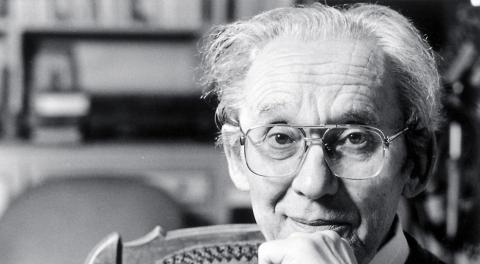Prof. dr. P. (Paul) Ricoeur
Honorary supervisor Prof. Dr. M.A.D. Plattel - 1982 –Faculteit Wijsbegeerte
Paul Ricœur (Drôme, 1913–Châtenay-Malabry, 2005) was a French philosopher from a strict Protestant family. His mother died when he was less than two years old, and his father was killed in 1915 at the Battle of the Marne. He was subsequently raised by his aunts.

During World War II, while in a POW camp, he translated a book by the philosopher Edmund Husserl, who was banned by the Nazis.
Ricouer studied philosophy in Rennes and Paris and became a professor in Strasbourg in 1948 and at the Paris Sorbonne in 1956. Professor of Philosophy Bert van Roermund called him "the philosopher of dialogues between absentees" in Trouw in 2005. "Ricoeur was and will continue to be regarded as the director of such dialogues, as a master of synthesis. Whereas other philosophers make a name for themselves by pushing a standpoint as far as possible, Ricoeur managed to establish a reputation with the opposite: he always tries to find the standpoint from which pronounced standpoints have something to tell each other. Underlying that synthesis is a form of penetrating reading, reading in the original sense of 'gathering'."
As a philosopher, Ricœur gained fame primarily through his works on human free will and man as a narrative being. There is little about which Ricœur did not think or write: often using current events as his raw material. Especially in uniting different philosophical traditions, phenomenology, hermeneutics, structuralism, and analytic philosophy, Ricœur proved himself a master. He was the first honorary doctor of the Faculteit Wijsbegeerte.
More about history and academic heritage
The Tilburg University academic heritage is a very diverse set of archives, visual materials, collections, devices, recorded stories, et cetera that relate to the history of the university.
